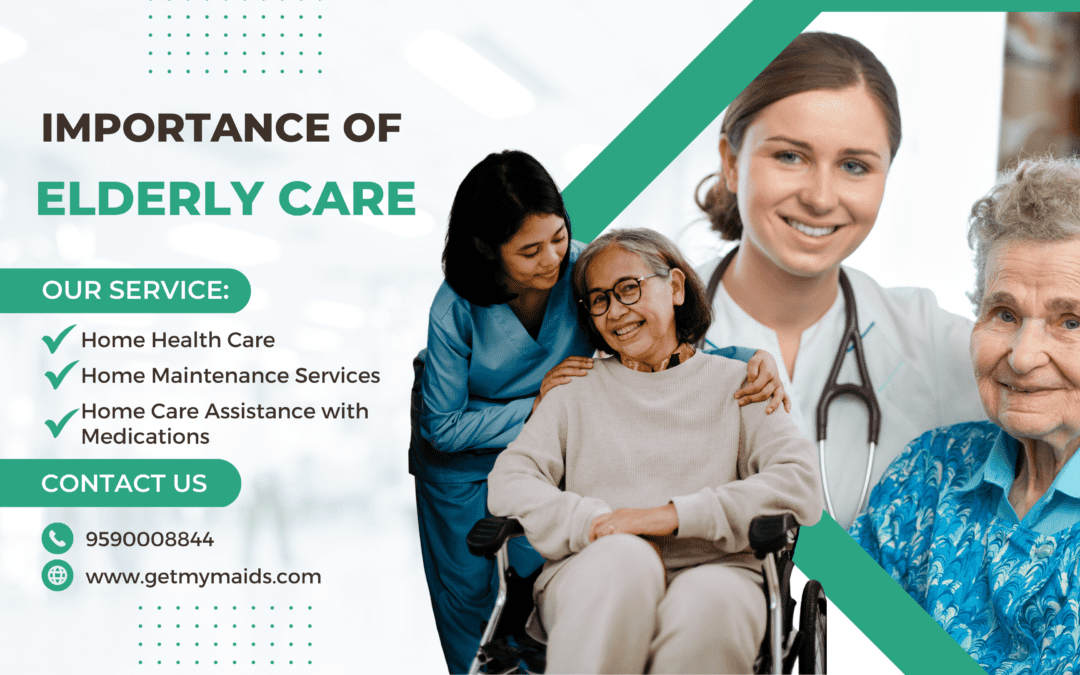
As the population continues to age, the need for elderly care services has become increasingly important. Elderly care not only improves the quality of life for senior citizens, but it also provides benefits for their families and society as a whole. This article will explore the importance of elderly care, including its benefits, challenges, and solutions.
Table of Contents
Improved Quality of Life
Enhanced Social Interaction
Improved Health Outcomes
Reduced Risk of Abuse and Neglect
Financial Burden
Limited Access to Care
Caregiver Burnout
Government Programs
Community-based Services
Technology and Innovation
Conclusion
FAQs
Improved Quality of Life
As people age, their physical and mental health can deteriorate, leading to decreased independence and reduced quality of life. Elderly care services can help seniors maintain their independence, improve their overall health and well-being, and enhance their quality of life. This can include assistance with activities of daily living, such as bathing, dressing, and grooming, as well as social activities, transportation, and other support services.
Enhanced Social Interaction
Many seniors experience social isolation and loneliness, which can lead to depression and other negative health outcomes. Elderly care services can provide opportunities for social interaction, including group activities, community events, and visits from caregivers and volunteers. This can help seniors maintain their social connections and improve their mental health and well-being.
Improved Health Outcomes
Elderly care services can help seniors manage chronic health conditions, prevent falls and other injuries, and improve their overall health outcomes. This can include medication management, monitoring of vital signs, and coordination of medical appointments and treatments. In addition, many elderly care programs incorporate wellness and exercise programs to help seniors maintain their physical and mental health.
Reduced Risk of Abuse and Neglect
Elderly care services can help protect seniors from abuse and neglect, which can be a significant concern for vulnerable populations. Caregivers can provide regular check-ins, monitor for signs of abuse or neglect, and intervene as needed to ensure seniors are safe and well cared for.
Financial Burden
Elderly care services can be expensive, and many seniors and their families struggle to afford the costs. This can lead to inadequate care or even the inability to access care at all. As the population continues to age, this financial burden is likely to become even more pronounced.
Limited Access to Care
In many areas, access to elderly care services is limited, particularly in rural and low-income communities. This can result in seniors receiving inadequate care or having to travel long distances to access services.
Caregiver Burnout
Caring for an elderly loved one can be emotionally and physically taxing, leading to caregiver burnout. This can result in inadequate care for the senior and negatively impact the caregiver’s own health and well-being.
Government Programs
Government programs, such as Medicaid and Medicare, provide funding for elderly care services, including home health care and long-term care facilities. These programs can help make care more affordable and accessible for seniors and their families.
Community-based Services
Community-based services, such as senior centers and Meals on Wheels programs, offer social support and assistance with activities of daily living for seniors. These
services can help improve the quality of life for seniors and reduce their risk of social isolation and neglect.
Technology and Innovation
Advances in technology and innovation are also improving elderly care services. This includes telehealth services, which enable seniors to receive medical care and monitoring from the comfort of their own homes, and wearable devices that can monitor vital signs and detect falls and other emergencies
Conclusion
Elderly care is an important issue that affects us all. Providing high-quality care for our seniors not only improves their quality of life, but it also benefits their families and society as a whole. While there are challenges to providing elderly care, there are also solutions, including government programs, community-based services, and technology and innovation. It’s important that we continue to prioritize and invest in elderly care to ensure that our seniors receive the care and support they deserve.
FAQs
- What is elderly care?
- What are the benefits of elderly care?
- What are the challenges of providing elderly care?
- How can we improve access to elderly care services?
- What role does technology play in improving elderly care?
Disclaimer: This article is written using the help of AI tools: Getmymaids
For housemaid services near me| home nurse services near me| Home caretaker near me | visit, www.getmymaids.com follow us on Instagram, Facebook
(Jerome Bara, Entrepreneur, Digitaljeron)
- Home Caretaker Services
- How to Deal with Housemaids
- Patient Care Services in Bangalore.
- Patient Care Services
- How to maintain long-term relationships with the housemaids.
- Best Elderly Home Care
- Elderly Caretaker at Home
- How to Keep Your Caretaker Agency Employees Happy and Productive
- The Ultimate Guide to Becoming a Professional Caretaker.
- The Ultimate Guide to Training Your Housemaid for a Spotless and Well-Organized Home

